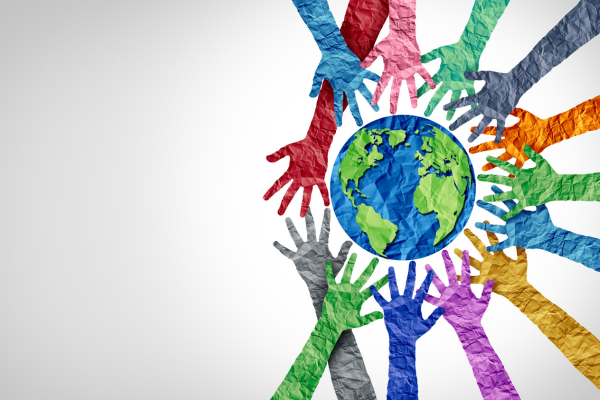
The UK Prime Minister, Rishi Sunak, made a sudden and unusual statement to the nation yesterday evening. The trigger for this speech appeared to be the election of George Galloway as an MP by the people of Rochdale. The Prime Minister is obviously no fan of Mr Galloway and it is clear they will not collaborate once the new MP sets foot in the Palace of Westminster. Based on last night’s speech, I doubt that Rishi Sunak will even want to exchange glances with the new Member of Parliament.
Meanwhile, as Rishi Sunak made his speech in London, elsewhere in the world, people were failing to collaborate or connect with others around them. People in Gaza were dying. Russians were facing arrest for attending the funeral of Alexei Navalny, the most vocal critic of President Putin. And in Iran, voting was extended for two hours as turnout in the elections there had been extraordinarily low. These are just examples of the many conflicts that exist in the world today.
According to the democracy watchdog, Freedom House, the world is becoming a more divided place. More and more places around the world are suffering from reduced freedom and civil liberty. Twenty years ago, it appeared that the world was becoming more democratic. However, in recent years, war, division, and conflict have led to a significant reduction in freedom.
Rather than people getting on with one another, there is greater division than ever before. I only need to say one word and you’ll know what I mean – Brexit.
This is all very odd, because in the world of business there has been a dramatic rise in globalisation. Just think of all the companies you use most days and they are all global — Amazon, Google, Microsoft, even perhaps, McDonalds. Your clothes come from China, Vietnam, or Bangladesh. Your mobile phone might be from South Korea. And the furniture in your lounge could well be Swedish. You would think this has made us more understanding of the world.
Even if you work alone and are not in a big business, you come into contact with people from a wide range of nationalities, ethnicities, and backgrounds. While the world at large is increasingly divided, the world of work is a cross-cultural mix with people collaborating with each other despite their different backgrounds. I work with people every day from China, India, Iran, Malaysia, Russia, and Sri Lanka. Each week, I also work alongside individuals from Brazil, Colombia, Egypt, Italy, and Spain. And this is before you even consider that the university I work at has students from 103 different nations. Everyone gets along fine, with high levels of collaboration even though there are wide differences in culture and background.
So, why is it that a university can get along, despite vast differences between individuals? The same question can be asked about Google or Microsoft or any other major international business. How come they can work together across different cultures, while at the same time many of those cultures being at war with each other?
As this week’s Harvard Business Review points out, the “trick” to collaborating across cultures in the workplace is all about building relationships. You can’t build effective relationships if all you worry about are the differences and the divides between you and other people.
The fact is that even though you might think you differ greatly from someone from another part of the world; you are much more similar. After all, the genetic variation between us is relatively tiny. Besides, as the pharmaceutical company Pfizer points out, you are 60% a banana. So you have to wonder why so many leaders in the world focus on differences and contrive conflict when we are all more similar than they might think.
Yet you can find this kind of divergent thinking within businesses. The team in one country assuming they are better in some way than their colleagues in another. I’ve been in more meetings than I care to recall where British business people arrogantly think they are somehow better than businesses from another part of the world. You can almost hear them thinking, “we taught them how to trade over a thousand years ago”.
Avoiding the arrogance trap is key to ensuring you collaborate and connect with others in the workplace. It’s not just cultural difference for which this is important. At the latest Buckingham Business Talks this week, I heard how businesses miss out on the talents of neurodivergent individuals in the workplace because of failing to see the value in their differences. It’s a sobering thought to realise that even today, children are punished if they use their left hand to write with because there is the assumption that you must hold your pen with your right hand. Failure to accept differences like this is at the root of division.
If you want to get on with your work colleagues, no matter their culture, way of thinking or neurodivergent status, accepting people for who they are so you can build a relationship is the only way to go. If only our political leaders thought that way. And before I go, one other thing. As Rishi Sunak pointed out yesterday, people from different cultures are being attacked and persecuted. So, to redress the balance a little, you could spend just a little time thinking about Jewish literature as today is the first day of “Jewish Book Week”.

